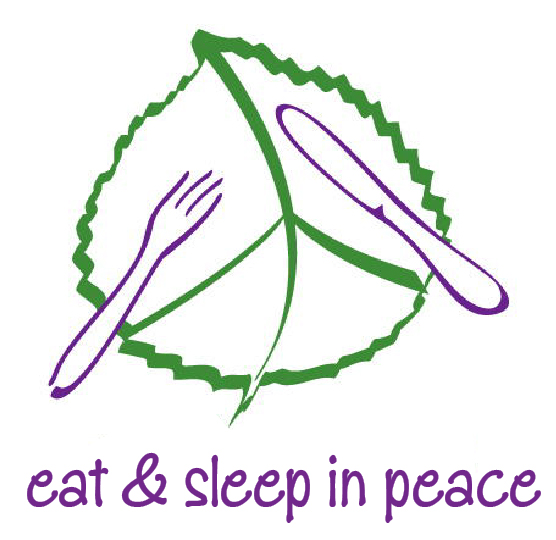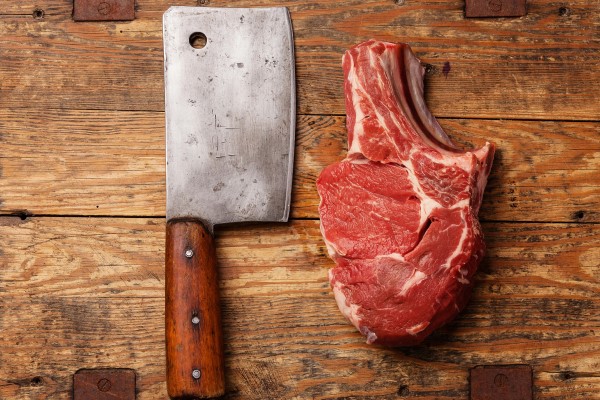We all have to eat. Food unites us. And for those of us committed to wellness, I commend everyone’s path. We are all trying to figure it out. Our nutritional needs change over time and so do our thoughts about food and what is good for us. The path of wellness takes you somewhere…
Sometimes the path takes you to a vegetarian diet and then you realize you need meat.
Sometimes the path takes you to animal protein and you realize that want to eat vegetables.
It’s all very exciting and hopeful UNTIL people lash out against one another.
I’m new to the virtual realm and social media. Instead of resisting this technology, I have come to see the World Wide Web as an analogy for the web of life. The web represents our interconnectedness and facilitates our ability to find like-minded people.
But in that desire to connect with people, let’s not shame each other for what we choose to eat when health and wellness is the intention. On multiple occasions on Instagram, I have received some variations of the following hostile comments:
“You call THAT conscious living.”
“There’s no peace on that plate.”
“You eat bacon in peace? Unfollow. Good bye.”
Come on. Really?!
If you don’t like what someone is up to, that’s fine, unfollow them, but don’t be rude about it.
Judging people for the food they eat is not going to change the world. It will only continue to perpetuate violence.
If a vegetarian or vegan lifestyle is a reflection of love and compassion for living things, people who eat animal protein are living things too, and deserve respect for their choices.
I believe that these generalities are literally killing us, and that addressing our relationship to food is one way we can begin to heal. There is no good or bad diet, just like there is no good or bad race, religion, or political parties. The minute we think that one way of doing something is superior to another we are officially screwed. The minute we think one group of people are superior to another, we are super screwed.
When I received the previous messages denigrating my lifestyle, my first thought was, “You don’t know me. You don’t know where I’ve been. You don’t live in my body. You don’t know how hard I have worked to restore my vitality and the role that animal protein has played in that.”
Behind every generalization is an actual person.
I remember one day when I was pregnant. My husband and I showed up for an appointment with our midwife, who was a vegetarian. She asked me if I was eating well, and I said, “Are you kidding? I love food. I ate six different kinds of animal protein yesterday because that’s what my body wanted.”
She chuckled and said, “That’s so great, Charlotte. I wish all my clients enjoyed food and listened to their bodies like that. Good for you.”
Now, that way of being in the world that my midwife demonstrated is attractive to me. A vegetarian diet works for this woman. I respect her, and she respects me.
The bottom line is that eating is just like politics, religion, and parenting. It is controversial with lots of ideals and attachments.
Food is loaded with issues. People use food like a drug. People use food to save themselves and demonize others.
To vegetarians: I love vegetables and fruits and nuts and seeds. We’ve got something in common!
To vegans: Your desserts are amazing! Check out my chocolate cashew cheesecake. Vegan foods are a gift to those of us who are dairy-free. And cheers to your creativity. And yes, I care about the environment and animal welfare, too. See, we have a lot in common.
I am learning that true healing requires an open heart and recognizing that everything has a place.
I used to make fun of organic food. Really, I did. And when I waited tables many years ago, there was this customer who made a huge deal about whether or not our salmon was wild or farm-raised. I literally cursed at him in my mind as I went back into the kitchen to ask the manager where we got our fish, “WTF is wild salmon? Where do these crazy people come from and why do they end up in my section?”
Look at me now! People change. Consciousness shifts. All I care about is that people are eating real food and are full of vitality, and if something isn’t working, then be open to change.
A few months ago, I noticed that one of my herbal mentors recommended a book in a conversation on Facebook. Since I don’t believe in coincidences or accidents, I took note of the book and ordered it called There Once Was a Tree Called Deru, by Kakkib li’Dthia Warrawee’a.
This is a fantastic read. Deru means truth. In this book, the author points out that “the greatest insult one can possibly express in [one of the aboriginal groups called] Ya-idt’midtung, is to say that someone is dtoong-karla: unable to see things in perspective and from differing points of view” (p31).
Doesn’t that just say it all?
A different perspective should make us curious. It should make us want to ask questions. Let’s stay in dialog. Let’s seek real solutions. Not eating meat is not going to change the world and neither is shaming each other. But seeing things from all angles, that’s a different story and will help us get through these trying times.
Everyone knows that vegetables and plants are good for us, but consuming animal foods, essential to the well being of many, many people (and the planet), has been demonized. From saturated fat content to animal cruelty, education is the key to understanding what is happening here.
These are some of the best resources I know of for understanding the complexity of this conversation:
Your Body Knows Best by Anne Louise Gittleman
This was one of the first books I read when I started studying nutrition in 2002. It opened me up to new possibilities and helped me understand that there is a gift and limitation to every single diet and that each of us is unique.
The Yoga of Eating: Transcending Diet & Dogma to Nourish the Natural Self by Charles Eisenstein
This is another great book pointing to the fact that your body is THE higher authority. It also gives you permission to step into your personal power when it comes to food.
If you are a vegan or vegetarian or interested in sustainable farming and how it can change the world, then these are wonderful resources as well:
Defending Beef: The Case for Sustainable Meat Production – The Manifesto of an Environmental Lawyer and Vegetarian Turned Cattle Rancher by Nicolette Hahan Niman
The Savory Institute, including Alan Savory’s Ted Talk: How to Fight Desertification and Reverse Climate Change
In Strong Medicine, author Blake F. Donaldson points to the fact that almost any extreme diet will offer healing, not necessarily because of what you are eating, but because of what you are not eating.
I often talk about eating as a sacred act and we benefit greatly when we place emphasis on how we eat, rather than obsess over what we are eating.
My hope is that food and how we eat it can play a key role in the expansion of consciousness on this planet and not further divide us. Changing how I eat changed my relationship to all of life in a positive way. That’s what I want for people. Let your path to wellness take you somewhere…wrestle with your ideals, learn to listen to your body, and stay open and inclusive even when it’s uncomfortable.
Eat in peace!
Love,
Charlotte

